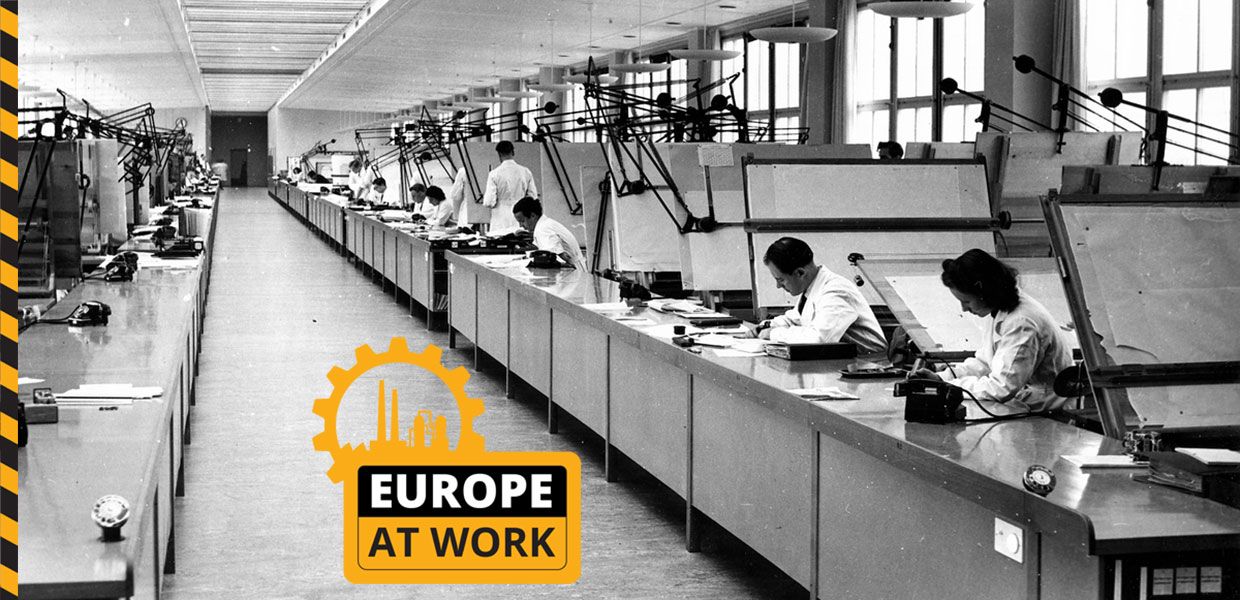Working lives change over time, often driven by changes in technology. Trades and skills develop continually and with them, people’s daily lives, domestic and professional routines and attitudes.
Whatever you do, your work doesn’t stay within the office, the shop floor, the classroom, the construction site. Whenever we work, labour or volunteer, we’re part of a bigger picture. Your working life shapes your habits, your routines, your identity and your community. What happens in society and technology both shapes and is shaped by how and where we work.
You are invited to contribute to Europe at Work - read on to find out how you and your organisation can get involved, share your own stories and even set up your own events.
What to look out for
Collection days
From September to November 2019, Europeana along with museums, galleries, libraries and archives across Europe, will run a series of collection days which will record the stories of the people who have worked at industrial heritage sites across Europe.
People across Europe can join in by sharing a story about their working lives, wherever they worked, either online or at events to which they bring their stories along with material such as pictures, diaries, videos and letters.
The first event is on 28-29 September 2019. It focuses on the Luso-Luxembourgeoises (the Portuguese community of Luxembourg) and will be held at Gare-Usines de Dudelange, Luxembourg. Thanks to partners Centre de Documentation sur les Migrations Humaines and Instituto de História Contemporânea, Universidade Nova de Lisboa.
Further events will take place in France, Finland, Italy, Germany, Ireland, Portugal and the Netherlands.
See full event listings
Inspiring interviews
A series of interviews with people whose ambition, vision and dedication to culture and cutting-edge technologies have significantly contributed to the digital transformation of our sector will feature on Europeana Pro in October.
Fascinating heritage material
Explore the new industrial heritage collection on Europeana - bringing together around half a million cultural heritage objects from around Europe - to discover and uncover fascinating industrial and labour-related heritage material. Over the next months, we'll be adding galleries and blogs exploring these themes.
What to do now
The cultural heritage sector has its own story to tell in terms of how it has changed over time. All cultural heritage institutions are being transformed by advances in digital technology. From handwritten information held on a filing card, to online metadata available to the world. Our processes, our audiences and our outreach are always developing. What has changed for you and your colleagues since your careers began?
Submit your story - Your story is part of Europe’s rich and shared history, and now it can be recorded for the future, and made freely available for anyone to discover and use for education, research, inspiration and pleasure. Think you have nothing interesting to share? Think again! Europe at Work is about all of us. Look at these example stories - from a shopkeeper in the 1890s to a modern dairy farmer.
Join us in extending the invitation to your community to share their stories on Europeana Collections.
And if you are interested in running your own Collection Day event to digitise and add material for Europe at Work, you can find help and advice on how to do that on our Europe at Work page.


